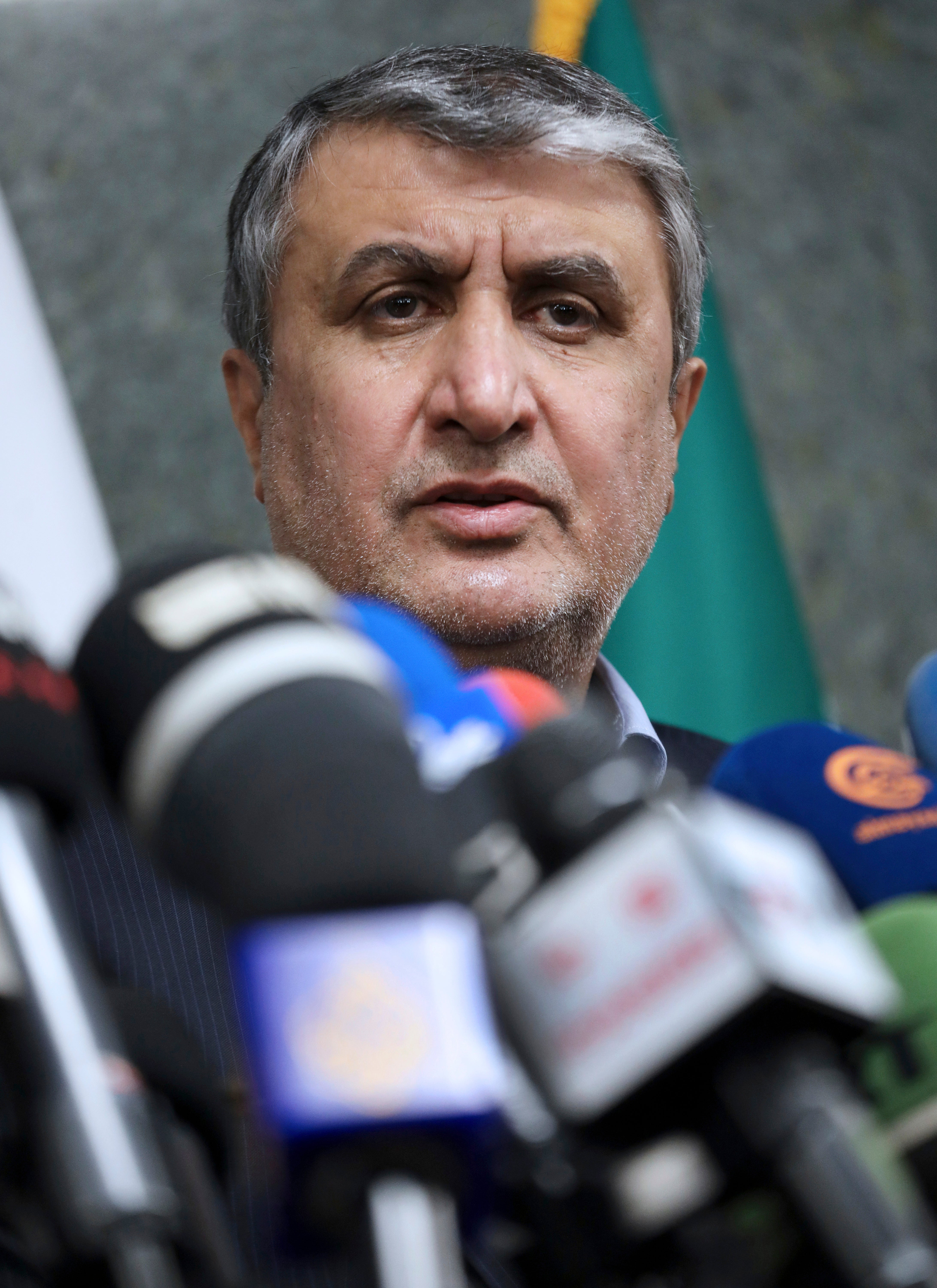Iran says it gave long-sought answers to UN atomic watchdog
Iran says it supplied the United Nations’ nuclear watchdog with documents related to the discovery of uranium particles at former undeclared sites in the country

Iran on Wednesday said it supplied the United Nations’ nuclear watchdog with documents explaining the discovery of suspect enriched uranium traces, state media reported, the first acknowledgement from Tehran that it had answered the agency's long-standing demands.
The head of Iran's civilian Atomic Energy Organization, Mohammad Eslami, said Iran on March 20 had sent the requested explanations about several former undeclared sites in Iran where there was evidence of past nuclear activity.
The deadline came as part of an agreement announced last month to resolve the problem of undeclared uranium particles in Iran by June — long a source of tension between Tehran and the U.N. atomic watchdog.
The thorny issue is separate from now-stalled talks to revive Tehran's nuclear deal with world powers, which collapsed four years ago when former President Donald Trump withdrew the United States from the accord and imposed crushing sanctions on Iran. In the meantime, Iran has vastly expanded its nuclear work.
As the fate of a renewed nuclear deal hangs in the balance, long-sought answers about Iran's old but undeclared nuclear sites would improve trust and solve a major sticking point in its negotiations with the International Atomic Energy Agency. The IAEA did not immediately respond to a request for comment about Eslami's statement.
Eslami told reporters that Iran had handed over documents to the U.N. watchdog about the three requested sites in Iran, without elaborating. He expected agency inspectors to visit Iran “to review the answers" and finish a report on the subject by late June, he added.
The IAEA in 2019 first discovered the traces of man-made uranium that suggested they were once connected to Iran’s nuclear program. U.S. intelligence agencies, Western nations and the IAEA have said Iran ran an organized nuclear weapons program until 2003. Iran long has denied ever seeking nuclear weapons.
As a member of the Nuclear Nonproliferation Treaty, Iran is obligated to explain the radioactive traces and to provide assurances that they are not being used as part of a nuclear weapons program. The IAEA has staked its credibility on finding information about the sites, with its head Rafael Grossi routinely lambasting Iran for its failure to answer where the radioactive particles came from and where they are now.
Eslami on Wednesday claimed that one of the particles discovered by IAEA inspectors does not exist in Iran, without offering evidence or details. He blamed regional archenemy Israel for “sowing doubts” about the nature of Iran's nuclear program. Israel has said it believes Iran would pursue a nuclear weapon, despite Western intelligence assessments indicating otherwise.
Tehran currently enriches uranium up to 60% purity — its highest level ever and a short technical step from weapons-grade levels of 90% and far greater than the nuclear deal’s 3.67% cap.
Its stockpile of enriched uranium continues to grow as nuclear talks in Vienna flounder, worrying nuclear nonproliferation experts that Iran could be closer to the threshold of having enough material for an atomic weapon if it chose to pursue one.